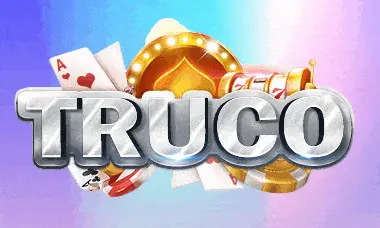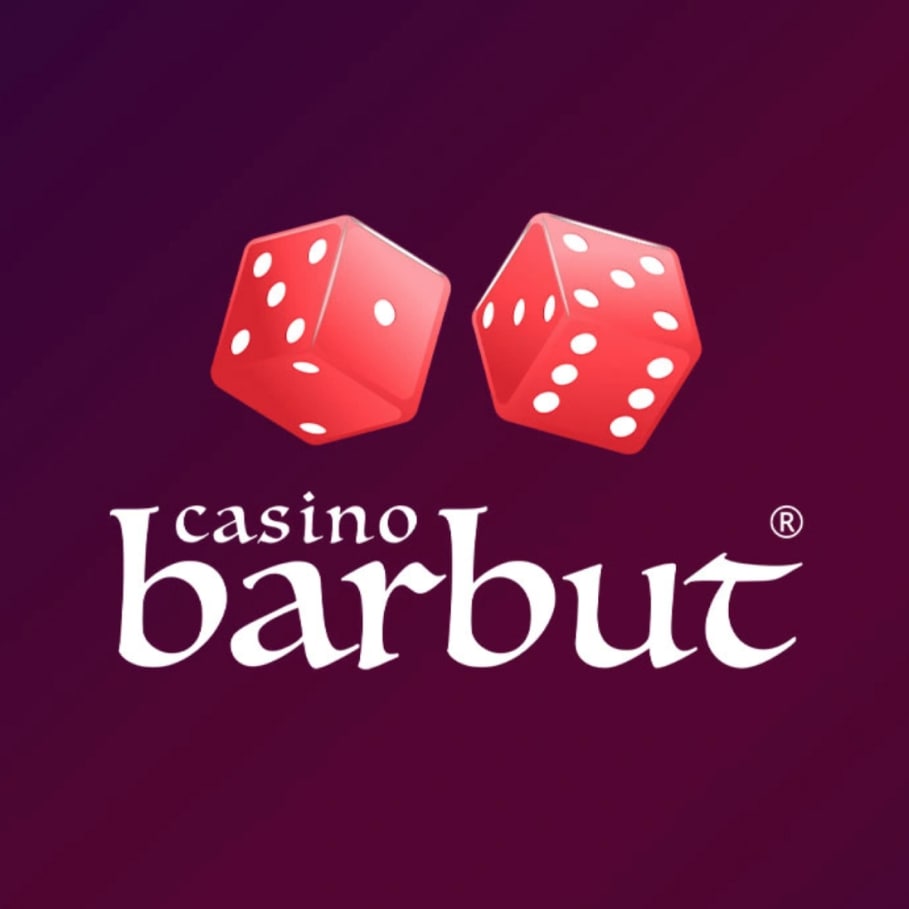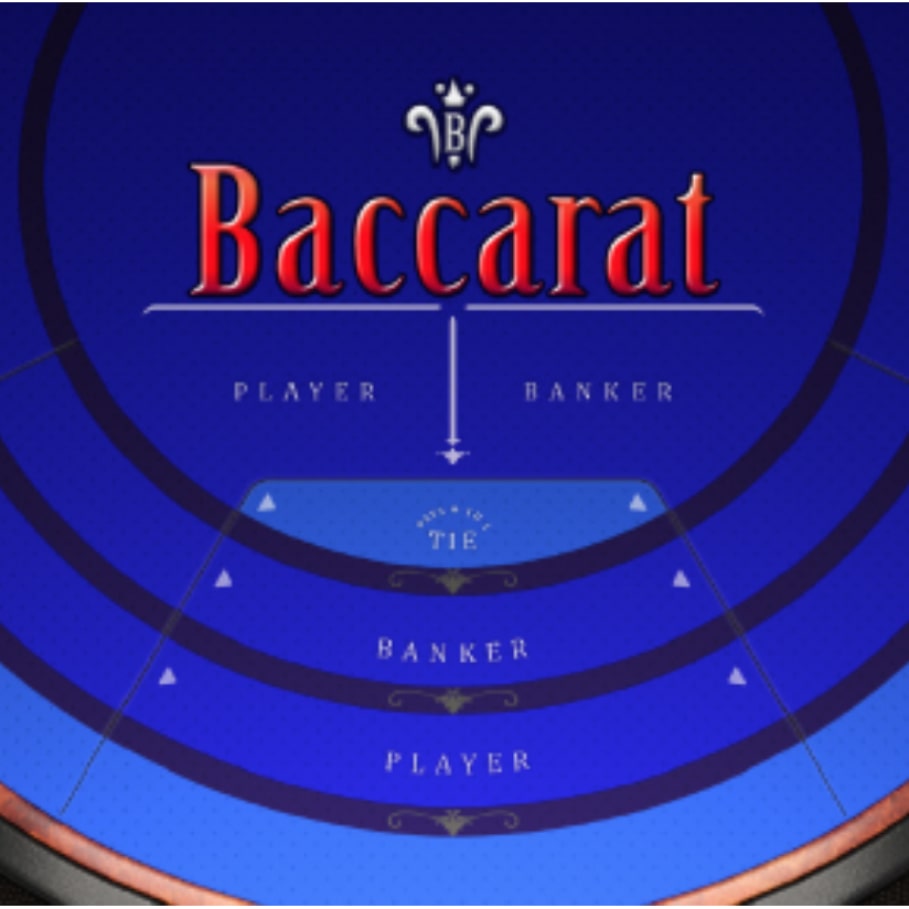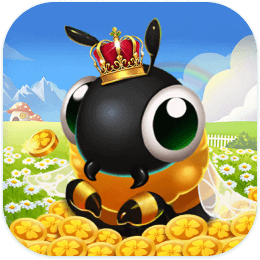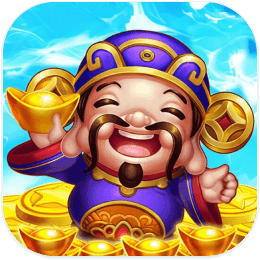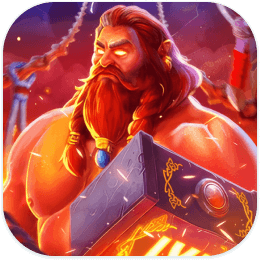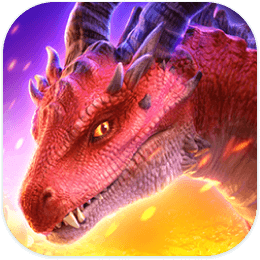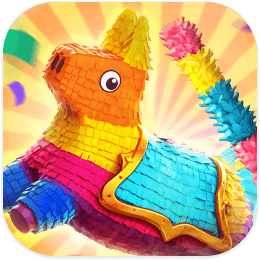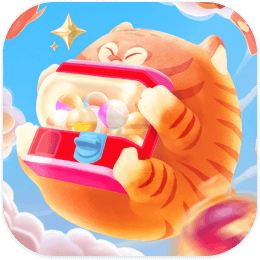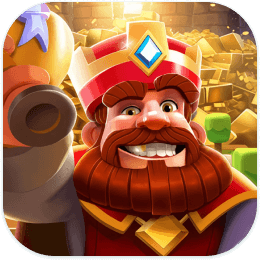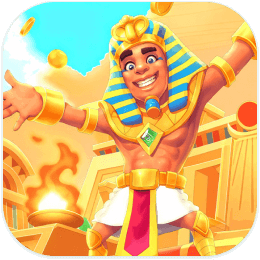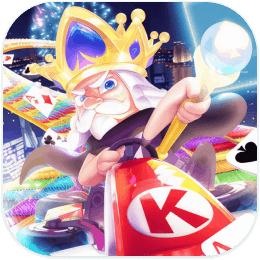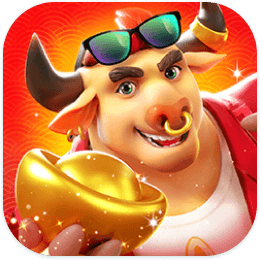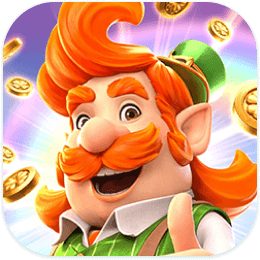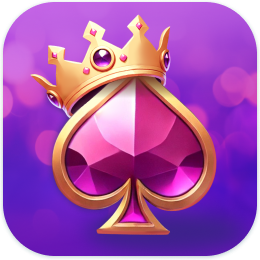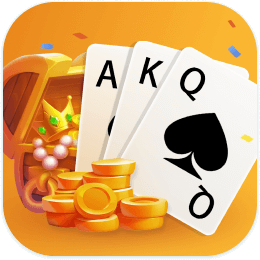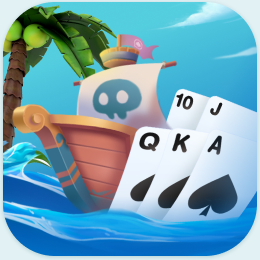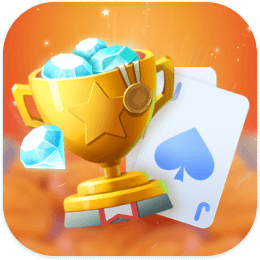A Comprehensive Guide for Mobile Game App Development
Looking to Create a Gaming App? This Comprehensive Guide Covers Everything You Need to Know About Developing a Successful Gaming Mobile App, from Ideation to Launch. February 24, 202333 Mins Read
Mobile gaming industry has witnessed a range of alterations since its inception, and the biggest cause has been technology. Starting from a game where you controlled a snake with four buttons to mark the highest score, now we play games where our avatars roam around an entirely new world, driving cars, shooting people, and changing dresses. Similarly, the industry introduced mobile games according to user interest and named them arcade, adventurous, puzzle, racing, fighting, and more.
The gaming mobile industry has grown to the extent that it contributed the most significant share of61% of Apple App store revenue in 2022 while 77% in that of Google Play Store. Diving into the statistics, 3rd quarter of 2022 witnessed an average monthly spend of $6.7 billion on mobile games. During the period, around 5 billion games were downloaded every month, with average monthly time spending of 28.6 billion hours. Let’s explore the statistics more in-depth-
| Time-Period | Consumer Spend (in billions) | Number of Downloads (in billions) | Hours Spent (in billions) |
|---|---|---|---|
| September 2022 | $6.5 | 4.57 | 26.57 |
| August 2022 | $6.94 | 5.05 | 29.58 |
| July 2022 | $6.88 | 5.34 | 29.72 |
| June 2022 | $6.69 | 4.81 | 27.3 |
| May 2022 | $6.58 | 4.9 | 28.61 |
| April 2022 | $7.02 | 5.2 | 27.13 |
| March 2022 | $6.93 | 4.98 | 26.93 |
| February 2022 | $6.63 | 4.69 | 25.32 |
| January 2022 | $7.37 | 5.5 | 29.32 |
| December 2021 | $7.21 | 5.05 | 27.28 |
| November 2021 | $6.71 | 4.66 | 25.29 |
| October 2021 | $6.91 | 4.73 | 26.7 |
Source As we talked about earlier, there are numerous mobile game genres attracting their respective users. The revenue share of the different mobile game genre worldwide in 2022 was as follow-
| Mobile Game Genre | Revenue share |
|---|---|
| RPG | 25.5 |
| Strategy | 12.1 |
| Match | 8.7 |
| Casino | 8.3 |
| Simulation | 8.1 |
| Action | 5.3 |
| Shooter | 4.8 |
| Sports | 2.8 |
Source
Different Genre of Mobile Games
As we discussed earlier, the mobile gaming industry has introduced a range of types of games; there are different genres that attract users according to their respective interests in gaming. For example, one person might be fond of wrestling, while another might be more interested in solving complicated puzzles. Different mobile gaming genres put different types of challenges on the user. Some of the most popular and downloaded mobile game genres are-
1. Casual Games
Casual games top the market as it is the most-played game genre among Android users. The reason behind the popularity of this game genre is that it is loved by people of all ages. These games are simple to play as users have to clear the challenges with a low difficulty level. Candy Crush is an example of such an app, and it is also one of the most played and downloaded mobile games in the world.
2. Arcades Games
Other than the casual game genre, the arcade game genre has also ruled the gaming segment for a long time. These games put small challenges in front of users that they have to complete in a given time. Arcade games are considered as the best time killer for users. Examples of such games are Angry Birds, Doodle Jump, and Fruit Ninja.
3. Shooters (FPS & TPS)
As the name suggests, mobile games, which mainly are focused on the shooting capabilities of the player, fall into the shooting game genre. It generally has names like Halo, Doom, etc.
4. Puzzle Games
As the name suggests, these games are basically digital puzzles that users have to solve. With users passing each level, the complexity of the puzzle keeps increasing. Different puzzle games are popular in the market, which consist of numerical puzzles, alphabets puzzles, scenery puzzles, and much more. Monument Valley and Two Dots are examples of popular puzzle mobile games genre.
5. Action Games
Action games are generally the mobile gaming genre that focuses on a physical challenge and requires high hand-eye coordination with quick reflexes. The action games mostly consist of shooting, fighting, survival, etc. The best example of this type of game is Call of Duty, Dragon Ball Legends, etc.
6. Casino Games
Mobile Casino Games are the digitalized version of physical games played in the casino. These indoor games have been bought for smartphones for people who love to make money while gaming. The genre has received a significant response from users because of ease of access, online money transfer options, replication of the casino experience, and the social factor. Some popular casino mobile games are Poker, Blackjack, Slotomania, etc.
7. Sandbox
Sandbox is known for its inclusion of an open environment, player choice, and non-linear gameplay. Unlike a board game, shooting game, or action game, Sandbox includes all of the above. The player performs a range of actions, such as running, driving, shooting, swimming, and more. Grand Theft Auto is the best example of this type of mobile game.
8. Role-Playing Games
These types of games are generally backed by some kind of popular stories where the user acts as a frontline character and takes the challenges of this story. These types of games take time to complete. It makes this genre one of the most user-engaged mobile gaming types around the world. Examples of role-playing games are Star Wars, Genshin Impact, etc.
9. Simulation Mobile Gaming
Simulation mobile gaming is basically focused on problem-solving skills. Its core vision is to teach the user about something in a particular situation. This type of game generally simulates a real-world situation and challenges the gamer to solve the problem. Sims Mobile and Stardew Valley are among the most popular simulation mobile gaming app.
10. Real-Time Strategy
This genre generally consists a strategic plot where the players have to focus on making the right strategy to confront the enemy and conquer the kingdom. Some of the most popular games in this category are Warcraft and Age of Empires.
11. Multiplayer Online Arena Games (MOBA)
When two opposite teams are built of real-time players competing against each other to achieve a goal while protecting their own properties and destroying the towers, turrets, and other properties of the opponent, it is called multiplayer online arena games. The most popular multiple online arena games are Mech Arena, Mario Kart Tour, Hearthstone, etc.
12. Party Games
Party games are generally minigame collection where two to four players competes against each other, mostly in a board game. Unlike multiplayer online arena games, party games focus more on fun instead of competition. One needs skill to play, luck, and a common factor with the team members to perform well in this category of game. Examples of party games are Mario Party Series, Sonic Shuffle, etc.
13. Horror Games
As you can guess from the name, mobile games which include supernatural characters and horror fiction to scare the player are called horror games. The main vision of this type of game is to provide the chance to experience and interact with horrors without putting self in real danger. The most popular horror mobile games are Dead by Daylight, Death Park, LIMBO, etc.
14. AAA-level games
AAA games are not a gaming genre but a term that is used to represent the high-budget, high-profile games typically produced by well-known publishers. These types of games are comparatively technologically advanced and gained huge popularity in a short period of time. Games like PUBG Mobile, COD: Mobile, and The Sims are considered in this category.
Technology Employment in Mobile Game App Development
So far, you would have only enjoyed playing different types of games on your smartphone. But have you ever wondered about the technical architecture that has been injected to deliver a seamless gaming experience to you? In fact, a mobile gaming app has a lot of technological integration in it for different actions in the game. Let’s talk about different technologies which are used to build a mobile game-
1. Game Engines
Game engine is basically a software development environment, also termed “game architecture” and “game framework.” The game engines are used to streamline the development process of mobile games across various programming languages. A gaming engine consists of various components in it to instill different capabilities in the game. It includes a 2D or 3D graphic rendering engine that is compatible with different import formats. It also consists of a physics engine that simulates real-world activities. Other components include artificial intelligence to respond to players’ actions automatically, a sound engine to control the sound effects, and an animation engine to host various other features.
2. Programming languages
Programming languages are the base of coding work, be it a gaming app or not. Developers write suitable codes for the respective platforms (iOS or Android), which leads to different types of commands and actions in the mobile game. The most popular programming languages used for mobile game app development are Java, Objective-C, C++, and Swift.
3. Cross-Platform Development Tools
Cross-platform development is the tool that eliminates the need to write separate codes for Android and iOS platforms. Development codes written in assistance to cross-platform development tools can be used on multiple platforms simultaneously. Common examples of cross-platform development tools are Xamarin, Flutter, and React Native.
4. 2D and 3D graphics
Recently, graphics have emerged as the determining factor for the popularity of games. Users prefer mobile games with high graphics as it elevates the overall experience with the game. The better the graphics, more clear the vision will be. Due to the demand for high-quality 2D and 3D graphics in mobile games, a number of tools, such as Illustrator, Adobe Photoshop, and Blender, are being used to create 2D and 3D graphics.
5. Augmented Reality (AR) and Virtual Reality (VR)
With uniform enhancements in technology, users are expecting real-life touch in their digital lives. Be it social media or mobile gaming, one who is providing real-time experience is leading the landscape. Integration of AR/VR has become more like a need lately where users are fond of experiencing the gaming character in their surroundings. Having goggles on the eyes and entering the game with help of VR has lately attracted users.
6. Artificial Intelligence and Machine Learning
Artificial intelligence and machine learning technology have played a significant role in enhancing the mobile gaming experience by generating responsive, adaptive, and intelligent behavior in non-player characters similar to those of humans. At the same time, machine learning, when integrated into mobile gaming, it helps to predict the effects of a player’s actions and program game events.
Tools Employment for Mobile Game App Development
Games nowadays consist of a lot of components such as characters, avatars, music, sound, graphics, pictures, videos, tools, tokens, and much more. To integrate these tools into the games, there is a range of tools that are used by the developers while developing the game
1. Integrated Development Environment
Integrated Development Environment is the software application that assists the programmers in writing the software codes efficiently and effectively. IDE increases the productivity of developers by combining the capabilities such as software editing, building, testing, and packing in an easy way. Some of the most popular IDEs are Android Studio, Xcode, and Eclipse.
2. Version Control Systems
Version Control Systems are software tools that help in recording changes made to files by keeping track of modifications done in the code. It helps to instill collaboration among developers located at different locations and contribute specific kinds of features or functionality to the software. The examples of VCS used in mobile gaming app development are Git and SVN.
3. Graphics Editors
Graphics, visuals, and animations have become the backbone of mobile gaming in the modern era, as these components are the determining factor of user experience. Graphics editors are computer programs that allow manipulating the graphical images and visuals to enhance the experience of a mobile gaming app.
4. 3D Modeling and Animation Tools
3D modeling is a technique that is used to create the characters, settings, props, and the entire scenario of the landscape. Each and everything that you see in your video games is designed with help of 3D modeling and animation tools. Examples of these tools consist of Blender, Maya, and 3DS Max.
5. Sound and Music Editors
As the name suggests, these are the software tools that help developers to instill, edit, and control the overall sound and music effects in mobile games. The most popular sound and music editor tools used in mobile gaming app development are Audaacity, GarageBank, and FL Studio.
6. Game Engines
The game engines are used to streamline the development process of mobile games across various programming languages. A gaming engine consists of various components in it to instill different capabilities in the game. Major game engines which are used by developers around the world in gaming app development are Unity, Unreal Engine, and Cocos2D.
7. Performance Testing Tools
Performance testing tools are the software support that helps developers to make sure mobile games are working as expected. It assists in identifying the bugs and issues with the software solution. Some popular performance testing tools are but are not limited to TestComplete, Appium, and Robotium.
8. Cloud Servies
Cloud services are used in mobile game development to store all the information about users, their account management, and real-time multiplayer capabilities. Further, the cloud services help to keep the game synchronized among respective stakeholders. Amazon Web Services (WBS) and Google Cloud Platform are the two most used cloud services in mobile gaming development.
9. Analytics tools
Learning and then making improvements is very necessary to achieve competitive advantages. Analytics tools such as Google Analytics and Flurry provide essential information, such as how a user interacts with the game to the app owners to make the necessary improvements.
Competitive Features of A Mobile Game
As we interpreted earlier, there are thousands, if not millions, of mobile games already listed on the Google play store and Apple app store. So, it becomes crucial that you develop a game that has the capability to compete against the domain leaders. While developing a mobile gaming app, you should ensure the inclusion of the following features in your project-
1. Engaging and Challenging Gameplay
While developing the mobile gaming app, make sure that the plot brings enjoyment and challenges to the player that they seek to complete. Design the complexity level according to your target audience. Too simple games will be deleted by users having completed once while much more difficult ones might lead to loss of interest.
2. High-Quality Graphics and Audio
User engagement are going to depend largely on graphics and audio quality. Ensure high-quality graphics resolution and sound quality in the game to enhance the user experience. Games with heavy graphics and good sound integration engage the users for far longer periods.
3. Social Sharing
Whether it is daily life updates or achievements in mobile games, social sharing is in trend. So, it has become a must-have feature to include the social sharing feature in the mobile gaming app where users can share their achievements with their friends.
4. Multiplayer Capabilities
It is high time for games in which users participate with or against their friends to play on mutual ground. No matter what the genre of the game is, multiplayer capabilities have become a must-have feature for mobile gaming.
5. In-App Purchases
To enhance their performance and power in the game, users spend plenty of money to buy new weapons and tools inside the game. It helps them beat their opponents. This feature has also become popular lately.
6. Reward System
Having reward systems helps keep the gamer more engaged in the app and increases the use time. At the same time, the reward system is also used to unlock the new power and levels in the game. This is one of the most common features that mobile gaming apps carry nowadays.
7. Progress Tracking
Progress tracking is the feature that helps the user to track the progress they have made in the game from the beginning. It might be a measurement for the number of levels, number of achievements, type of badge achieved, and much more.
8. Tutorial and Help Section
The tutorial and help section is an additional added section in mobile games that displays all the features, rules, playing procedures, and basic information about the game. This section makes the game familiar to new users.
9. Push Notifications
This is one of the basic and most common features that reminds the user about upcoming levels, playing sessions, or newly unlocked features. While developing a mobile gaming app, make sure to include the push notification feature in your app.
10. Customization Options
In the 21st century, people prefer things in their own way. Having customization options where gamers can customize their avatars, game settings, themes, daytime, ground, and other things can be a big plus point for your mobile game app.
11. Leaderboards
Leaderboard cum scoreboard is the feature that displays the ranking and performance of the different players in the game. The feature helps to create a sense of competition among the participants and thus enhances engagement.
Latest Technological Concept Implementation in Mobile Games
There was a time when we used to play games on mobile devices without any connectivity or network. With the evolution of the internet, mobile games have witnessed a significant change where players can connect, build teams, and play with their real-time friends. However, the evolution is still not taking a pause as new game technological trends are taking the gaming industry to the very next level.
1. Blockchain
Blockchain is playing a role in a range of practices in mobile gaming. For example, it allows players to buy, sell or trade in-game virtual items with the help of cryptocurrencies or non-fungible tokens (NFTs).
2. Metaverse
Metaverse is altering every industry in the market and the gaming industry is at no escape. Having experienced AR and VR in gaming, one can now enter a world of gaming. Walking into a new verse and using favorite weapons, driving favorite cars, or shooting with a favorite gun completely transfiguring the experience.
3. IoT
Playing the game on different devices by synchronizing the details and data is the contribution of IoT Technology in the gaming segment. One can play games on a smartphone, tablet, laptop, or desktop without any complicated process.
4. Cloud Gaming
Vision of the technology advancements in the gaming industry is to minimize device compatibility dependence. Today, most of the popular games require an equally advanced mobile device to operate. Cloud gaming is the concept that brings a vast range of popular games onto less advanced devices so that a wider audience base can leverage the benefits. At the same time, cloud gaming concept also facilitates the ability to run a single game on multiple systems simultaneously. The best examples of cloud gaming are Google Stadia, NVIDIA GeForce Now, Amazon Luna, etc.
Project Lifecycle of Mobile Game Development
Requiring a significant investment, developing a successful mobile gaming app is never an easy or small task. It consists of different phases and steps, including the technical and non-technical ones, to complete the downloads. The development process of a mobile gaming app looks like this-
1. Market Research & Analysis
Your decision about gaming app development must be based on strong fundamentals of research and analysis. Go through the market stats, trends, and user behavior toward different types of mobile games. At the same time, it also analyzes the existing competitors in the landscape. Evaluate the features they are providing to their users and make the decision accordingly.
2. Planning & Prototyping
Once you are done with making the decision, it is time to plan about features, technologies, and functionalities you want to see in your mobile game. A blueprint of the app is created in the second phase, which helps the developers to develop the prototype of the project. A prototype is a rough idea of how your actual product is going to look and work. Evaluate this prototype efficiently and seek the necessary changes. It might be a costly and time-consuming task to implement the change once the prototype has been passed.
Best Wireframing, Mockup & UI Prototyping Tools For App Development
3. UI/UX Design & Core Development
After passing the prototype, the User interface and User Experience are designed in the app. The better the UI/UX, gamer engagement will be. Simultaneously, the core development of the app also takes place in which the core coding work takes place. Programmers write the code and ensure the core functionality of the game.
4. Testing and Debugging
This is the last phase of app development before deployment. The app is tested by the Quality assurance team multiple times. The tests like unit testing, component testing, integration testing, performance testing, end-to-end testing, regression testing, sanity testing, system testing, graphics testing, and much more take place. Bugs are identified in the phase and are removed to streamline the user experience.
5. Deployment and After Support
When all the bugs have been removed, and the app is in its perfect condition to run, it is deployed to its respective platform (Android or iOS) to make it available for its target audience. However, it doesn’t end here, as many marketing practices must be conducted to make the app popular. At the same time, timely updates are also an essential part of the process.
Best Platforms to Deploy the Mobile Game
Smartphones are ruling the world. However, when talking about the operating systems, majorly two smartphone OS cover approximately the entire population. While developing the mobile gaming app, you have two major options as deployment platforms i.e., Apple App Store and Google Play Store. These two platforms cover more than 95%of the total app market around the world.
1. Google Play Store
Currently, there are around3.5 million apps and games on the Google Play store, enhancing the usability of Android smartphones. If your mobile game is not targeting the western markets only, this is the best deployment platform for your gaming app. At the same time, it requires only a one-time fee of $25 to deploy the app on Google Play Store.
2. Apple App Store
Other than the play store, Apple App Store is another dominating name in the landscape of the app market. The platform has more than 1.6 million apps listed for its users. Apple device users around the world access this platform. To deploy your gaming app on the Apple App store, you will need to pay an annual fee of $99.
3. Amazon App Store
Another app market for android users, Amazon app store, is also a go-to place for certain types of apps and games. The platform is popular for its accessibility from Windows 11 devices as it makes downloading games and apps much easier.
Contributors of A Seamless UI/UX Design of Mobile Games
As we said in the earlier section, UI/UX determines the user’s interaction with the app. The UI/UX of the game must be designed in a way that all the information and features of the mobile game are easily accessible to players. Following are some of the considerations that, if you entertain while developing the UI/UX of your mobile gaming app, can help you streamline the experience
| Consistency | The UI/UX is meant to be consistent throughout the app with a unified virtual style and design language. It should not interrupt the user for any action. |
|---|---|
| Visual hierarchy | Different components and information on the UI/UX should be differentiated with the help of color, size, and placements. |
| Intuitive controls | The controls in UI/UX should be easy to use and understand with simple instructions. |
| Onboarding | The UI/UX must have a clear onboarding process that assists the users in understanding the game and its mechanics. |
| Contextual feedback | The UI/UX of the app must be instant responsive and present the feedback of the action or click made by the user. |
| Feedback loop | Sending automatic reminders to the player is also a crucial part of mobile game UI/UX. It includes sending a reminder to return to the game or informing about newly unlocked levels or rewards. |
| Engaging graphics | Graphics can change the whole game for you in the gaming landscape. Ensure the graphics you integrate into your gaming app are appealing, high quality, and optimized for mobile devices. |
| Minimize Distraction | While designing the UI/UX of mobile gaming, don’t put the necessary components that might distract the gamer or user. |
| Responsive | Decide the touch target size smartly according to the quantity of the components. Every feature and information should be easily touchable and responsive for the users. |
| A/B Testing | To evaluate the UI/UX designs as well as measure the effectiveness and adjustments according to the behavior and feedback of users, use A/B testing. |
Monetization Strategies for Mobile Gaming Apps
When developing a mobile gaming app requires so much investment, the monetization model becomes the primary concern of the owners. However, while developing the mobile gaming app, you need not worry about the income sources as there are plenty of monetization strategies that you can implement in your project. Let’s talk about some major monetization models you can implement in your app-
1. In-App Purchases
In-app purchase has emerged as a significant monetization model for different types of mobile apps. This monetization model consists of selling virtual goods in the app. This monetization model is most popular in the mobile gaming app segment. Players purchase new weapons, vehicles, badges, dresses, extra lives, and many other things.
2. Advertising Model
Once your mobile game has managed to attract a huge user base, advertising revenue can substitute all the other income sources at once. It is one of the best sources of sleeping income as displaying the advertisement of other platforms, companies, or brands on your app will pay you a good amount.
3. Freemium Model
Freemium model is among the best monetization strategy for the mobile gaming apps as it ensures to first attract the users and then charge them according to their interest only. As per this model, users have liberty to use the basic functions and features of the game without any cost. Users are charged for certain premium features or goods in the app which are entirely optional.
4. Subscription
Less popular in mobile games but more popular in movie and video streaming platforms, subscription model is the one in which the users are charged on a periodical basis. To leverage the fun of mobile game, players will have to pay a certain charge after every interval of week, month, quarter, half year or year.
5. Meta Layer Monetization
Meta layer monetization is somewhat like the freemium model but a more transfigured version of it. People nowadays want more and more fun with engagement in the mobile gaming. Thanks to the craze, meta layer monetization has become the trend in recent time. With this model, the game owners keeps an enhanced version and experience separate from the core game mechanics. This version is paid that provides an entirely elevated experience to their users.
6. Data Monetization
Having engaged a good number of users in the game, basic information about a huge user base gets accessible to the relevant authorities. By performing the necessary data masking, this information is shared with the product/service company or advertising agency to enhance the consumer experience. The same practice brings good revenue in exchange for the data.
Cost of Developing a Mobile Game
If you are expecting to get an exact number for the cost of app development, it will not happen until and unless we have not finalized a number of things. The reason behind the statement is that the cost of mobile gaming app development depends on a range of factors. Any alteration made in any specification of the app will alter the cost of app development as well. Just go through the following points, and you will get all the concepts cleared-
1. Factors that Determine the Cost of Mobile Game App
| Platform of App Deployment | You can develop the mobile game for android users, iOS users, or both. The cost of mobile gaming app will be different as per your choice of a mobile gaming app. |
|---|---|
| Number of Features | The cost of mobile gaming app development is directly proportional to the number of features you want to integrate into the app. More are the features, higher will be the cost. |
| Types of features | If the features are basic, they will require no high cost. However, if you wish to add advanced features, it will cost you some extra dollars. |
| Complexity of Project | A fundamental gaming app can be developed in a lower amount, while a complex app will cost you both time and money. |
| Location | Location of your development partner makes a significant difference in the cost of your gaming app project. For example, the development team in countries like India can be hired at a fraction of the cost compared to countries like the USA or the UK. |
| Post-Deployment Assistance and Support | A gam has to be kept updated even after the deployment. So, the post-development assistance and support you seek from your development company will also add to the cost. |
2. Estimated Cost of Game App Development
As we interpreted earlier in the section, the cost of game development depends on various factors. However, for an estimation, you can expect to get a basic gaming app developed for as low as $15,000 and keep adding the dollars according to the features and customizations you seek in the project.
Budgeting Tips for Mobile Game App Development
| Plan the Budget at Earlier Stage | Make sure you have a budget in mind so you can perform the rest of the planning accordingly. For example, the type of app, location of the app development team, and choice of the app development partner are dependent highly on your budget for app development. |
|---|---|
| Outsourcing | Outsourcing your project to a cost-efficient development agency and location can be one of the best options to reduce the app development cost. For example, choosing the Asian markets for your project can get your project completed at a fraction of the cost. |
| Avoid Feature Bloat | People nowadays are concerned about the quality and useful features rather than the bulk of features. So, don’t add unnecessary features, as it will increase the cost. |
| Test More Often | Perform software testing more often to identify the bugs and fix them instantly. Making changes at the final stages costs a lot of time and money. |
Challenges & Solutions in Mobile Game Development
Developing a mobile game can be a fruitful decision for you. However, there are some key challenges that you must concern about during the journey as it will help you ensure that the same mistakes are not repeated by you which are often repeated by other people. Have a glance at these challenges and their mitigations-
1. Technical Challenge
Mobile game is meant for all smartphone users, or it will reduce the size of target audience. But, people around the market have different types of smartphones with different capabilities and technical support. The processing power and size of game might make it unsupported for a significant segment of mobile devices.
Solution:
Some of the best solutions for the above-defined challenges are reducing the game size, and performance, reducing the number of polygons in 3D models, compressed texture, etc.
2. Competition in Mobile Game Landscape
You might have noticed the number of mobile games on different app markets in our above sections. A huge competition is waiting for you to deploy your game and suppress it by dominance. If not fought well, your game might get lost in the crowd.
Solution:
The best ways of achieving competitive advantages in the mobile games landscape are but not limited to creating unique and innovative gameplay, leveraging social media and influencer marketing to build a following, and optimizing the game’s metadata and keywords to improve its visibility in app stores.
3. Balancing Monetization and User Experience
As a gaming app owner, one needs to invest a significant amount in development. Thus, monetizing the game and earning back the investment is always the concern. At the same time, it is also important that the practices implemented for monetization are not ruining the user experience. Thus, balancing the monetization and user experience in a mobile game is often a big challenge.
Solution:
Adopting a suitable monetization strategy for the gaming app is the best solution to this challenge. The monetization model can be in-app purchases or meta-layer monetization.
4. Managing Player Expectations
Users are getting an enhanced gaming experience every now and then. It has led to increased expectations of the customers from the mobile gaming experience. The same has caused a big challenge of matching player expectations according to the changing trends.
Solution:
Integrating modern time technology like AR/VR, high-quality graphics and sounds, and micro-controlling in the game is one of the best solutions for the above challenge.
5. Quality Assurance and Bug Fixing
Mobile Game is one of the most engaging segments of mobile apps. Along with being positive news, it also increases the responsibility of the developer to make the application bug free, or the user will instantly identify it. The more the users are playing the game, the more they have time to confront the bug.
Solution:
Efficient quality testing by the QA team is the most effective solution to this challenge. Similarly, taking the right actions on the feedback of users is also a good mitigation for this challenge.
Best Promotional Strategies for a Mobile Game
You can only expect a good ROI when a good user base is regularly playing your mobile game. Hence, deploying the app might not be sufficient, but informing and inviting people to your platform can be the game changer. That’s where the marketing walks in. Ensuring the efficient marketing of mobile apps can significantly transfigure the performance of your game in the app market. A good marketing campaign for mobile gaming apps consists of the following steps-
| Pre-Launch Marketing Strategies |
|---|
| Teaser Campaigns |
| Influencer Marketing |
| App Store Optimization |
| Beta Testing |
| Post-Launch Marketing strategies |
| Social Media Marketing |
| Paid advertising |
| Content updates and events |
| Community Engagement and User Acquisition |
| Community management |
| Referral programs |
| Cross-promotion |
Why Choose Emizentech for Mobile Game Development
Emizentech is a leading app and game app development company in IT landscape, growing continuously by adopting the cutting-edge technological trends on a regular basis. With a strong experience of more than a decade in the landscape, we have worked on numerous gaming projects. Same allows us to take the best decision while undertaking the similar projects from our clients. Our core competencies are but not limited to-
- An enormous experience of more than a decade to develop digital solutions for our clients.
- Expertise of working on several gaming projects delivering a product that matches with the vision of our client.
- Offer customized services where product owner can design the solution according to their preferences.
- No compromise in the quality regarding development, designing, functionality and user experience.
- Keep communication at the center with our customers to eliminate any chances of misunderstanding.
- Knowledge of areas where cost can be reduced without compromising with the quality and capabilities of the software.
Conclusion
Gaming app segment is experiencing a sharp spike with increased number of smartphone users. Same has bought an enormous opportunity for all where one can develop a top-notch mobile gaming app and attract the user base of million in no time. Instilling the right monetization model can bring a good revenue to the app owner. But, having a reliable software development partner is the foremost need to leverage the opportunity.
Here, Emizentech can be your reliable developer partner and invite you to give a digital shape to your vision. We offer an hour of free consultation to everyone seeking to enter in the digital landscape. Feel free to connect, share your idea, and get the right guidance.
Frequently Asked Questions on Mobile Game Apps
How to Hire Game App Developers?The correct method to employ a game app developer is to take the support of reliable platforms, analyze the experience, go through the portfolio, and review the testimonials of the development team. We are glad to state that Emizentech has all of this.
Why Outsource Mobile Game App Development Services?Outsourcing mobile game app development services to cost-efficient markets like India can help you get the same skills at a fraction of the cost.
What Are the Platforms Used for Mobile App Game Development?Majorly two platforms are used for mobile game app development, i.e., Apple App Store and Google Play Store. Both platforms combined cover 95% audience of the total smartphone users worldwide.
The Manifest Hails Emizen Tech as One of The Most-Reviewed Gaming App Developers in New York
March 29, 2024
How to Make an iPhone Game: Building Your Own Gaming Experience
November 23, 2023
A Guide to Hire the Right Game Developer for Your Next Project🎮
November 22, 2023 March 29, 2024 November 23, 2023 November 22, 2023 #23 Chase Tower, opp. Metro Pillar 31, Rajiv Vihar Colony, Jaipur, Rajasthan 302019
Vishal MehtaSales Consultant- +91-8529003877
- emizentech
- email protected
Say Hello!
This website uses cookies to improve your experience while you navigate through the website. Out of these, the cookies that are categorized as necessary are stored on your browser as they are essential for the working of basic functionalities of the website. We also use third-party cookies that help us analyze and understand how you use this website. These cookies will be stored in your browser only with your consent. You also have the option to opt-out of these cookies. But opting out of some of these cookies may affect your browsing experience.
Literally Mindblowing Gameplay. 15 to 20-minute intense playtime. Enter the arena, go three rounds against The Dealer, and walk away with the prize.
This site only collects related articles. Viewing the original, please copy and open the following link:A Comprehensive Guide for Mobile Game App Development

